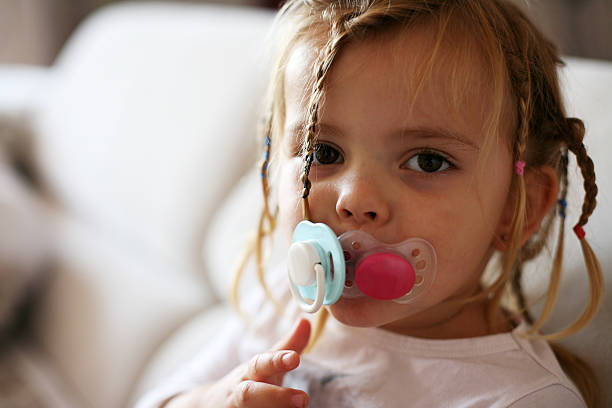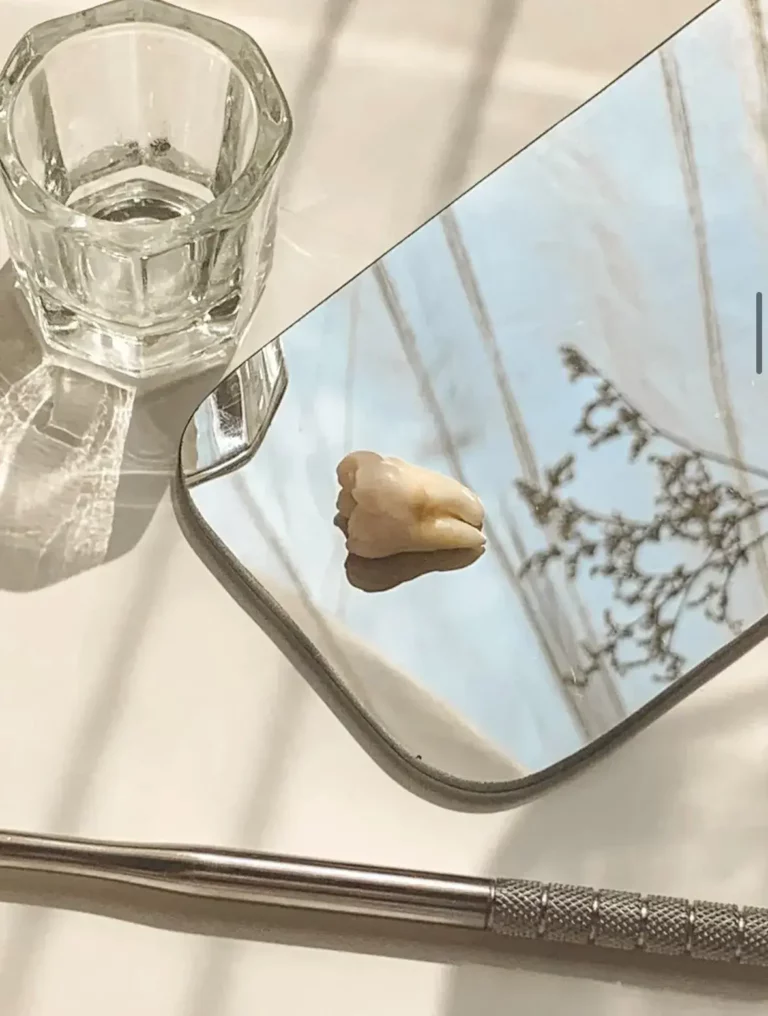
June 27, 2024

Pacifiers have long been a go-to for parents seeking to soothe their infants. While these small devices can provide much-needed relief, there is a growing concern about their impact on dental development.
In this guide by Pleasanton Dental Care, we will explore the relationship between pacifier use and teeth, debunk myths, and offer practical advice for maintaining your baby's oral health.
Pacifier teeth refer to dental issues that can arise from prolonged pacifier use. These issues often manifest as misaligned teeth, including open bites and crossbites, where the upper and lower teeth do not align properly. Understanding what pacifier teeth are can help parents make informed decisions about pacifier use.
The term pacifier teeth is widely used, but not all children who use pacifiers will develop dental problems. The key factors are the duration and intensity of pacifier use.
When used appropriately, pacifiers do not necessarily lead to dental issues. Let's explore this further to separate fact from fiction.
To better understand the potential impact of pacifiers, it's essential to grasp the basics of early tooth development.
Babies usually start teething around six months of age, but this can vary widely. Some may begin as early as three months, while others might not see their first tooth until after their first birthday.
Typically, the lower central incisors are the first to appear, followed by the upper central incisors.
Sucking is a natural reflex for infants and plays a significant role in their oral development. It helps strengthen the muscles around the mouth and aids in the formation of the jaw and palate.
Non-nutritive sucking, such as using a pacifier or thumb sucking, can provide comfort and help calm babies. It also contributes to the development of oral muscles and can be especially soothing during teething.
While pacifiers can be beneficial, they also come with potential concerns that parents should be aware of.
Not all pacifiers are created equal. The type of pacifier used can have varying impacts on dental development. Orthodontic pacifiers, designed to support healthy oral development, can be a better choice compared to traditional pacifiers, which may pose a higher risk if used excessively.
An open bite occurs when the front teeth do not touch when the mouth is closed, and a crossbite occurs when the upper teeth sit inside the lower teeth. Prolonged pacifier use can influence both conditions, but choosing the right type of pacifier can mitigate these risks.
The duration of pacifier use is crucial. Limiting pacifier use to the early years can reduce the risk of dental issues. Experts generally recommend weaning children off pacifiers by age three at the latest to minimize potential problems.
Parents can explore alternative soothing techniques to reduce reliance on pacifiers. These might include rocking, singing, offering a soft toy, or using other comforting objects to help soothe the baby.
Parents often have numerous concerns regarding their child's oral health, particularly when it comes to pacifier use. Addressing these concerns proactively can help prevent potential issues.
Parents should watch for signs of dental issues, such as misaligned teeth, difficulty biting, or changes in the shape of the roof of the mouth. Early detection can help in managing and mitigating these problems.
Early intervention is key to addressing dental concerns. Parents should consult a dentist if they notice any signs of dental issues related to pacifier use. Regular dental visits at Pleasanton Dental Care can ensure any potential problems are caught and treated early.
Weaning a child off pacifiers can be challenging but is necessary to prevent long-term dental issues. Gradually reducing pacifier use and introducing other comfort methods can help in this transition.
Techniques such as limiting pacifier use to specific times (like nap time) and offering other comfort objects can be effective.
Maintaining oral health during infancy is crucial for preventing dental issues later in life. Here are some key practices to follow.
Good oral hygiene should start even before the first tooth appears. Parents should clean their baby's gums with a soft cloth or gauze pad after feedings.
Once teeth begin to emerge, it is important to transition to a small, soft-bristled toothbrush. Using a tiny smear of fluoride toothpaste can also help protect against cavities.
Regular dental checkups from an early age can help monitor and maintain oral health.
The American Academy of Pediatric Dentistry recommends that children see a dentist by their first birthday or within six months after their first tooth appears. These visits can ensure any potential issues are identified and addressed early.
Beyond pacifier use, there are other factors to consider in maintaining a child's oral health.
Both thumb-sucking and pacifier use have their pros and cons. Pacifiers can be easier to control and wean off compared to thumb sucking, which can persist longer and be harder to manage.
However, both habits should ideally be curbed by age three to prevent dental issues.
Prolonged bottle feeding, especially with sugary drinks, can lead to dental decay. To prevent dental issues, parents should avoid putting their children to bed with a bottle and transition to cups as their child grows.
As children grow, maintaining good dental hygiene practices becomes even more important. Encouraging regular brushing, limiting sugary snacks, and ensuring regular dental checkups can help keep their teeth healthy.
Molars’ development plays a critical role in a child's dental development. These larger, flat teeth are essential for chewing and maintaining the alignment of other teeth. Ensuring that molars develop correctly is crucial for overall oral health.
With over a decade of dedicated service, we blend premium materials, cutting-edge technology, and a compassionate approach to deliver exceptional dental care. Our warm and family-like atmosphere ensures you feel valued and cared for during every visit.
Experience top-tier dental services at Pleasanton Dental Care. Our premium materials, compassionate team, and advanced technology ensure excellence at every visit.
Trust a decade of dedicated service for your best smile. Your smile deserves the best. Pleasanton Dental Care offers top-rated dental services. Schedule today!

Pacifier use is a common practice that, when used appropriately, can provide comfort and aid in oral development. By understanding the potential impacts of pacifiers on teeth, parents can make informed decisions and take proactive steps to maintain their children's oral health.
Regular dental checkups at Pleasanton Dental Care, good hygiene practices, and early intervention are key to ensuring healthy teeth and a beautiful smile for your child.
Take the first step towards a healthier, brighter smile! Schedule your personalized dental appointment now and experience top-notch care from our dedicated team. Your journey to optimal oral health begins here.
BOOK APPOINTMENT